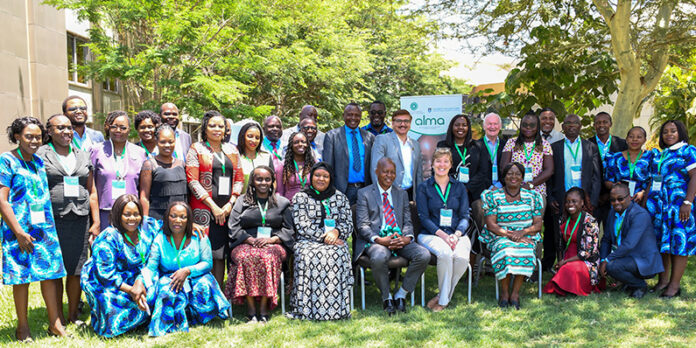The African Leadership for Measuring Brain Health in Children and Adolescents (ALMA) consortium, launched by the Aga Khan University Institute for Human Development, is a significant step towards understanding and promoting early-life brain development in Africa. This initiative addresses key challenges in the field of neuroscience and aims to cultivate the next generation of African research leaders with a deep understanding of the science of the young brain.
ALMA’s Vision for Advancing African Neuroscience
- Localized Evidence for Tailored Interventions: One of the primary goals of ALMA is to generate locally relevant evidence that can inform interventions tailored to the African context. This is crucial for understanding the unique needs of African children and ensuring their optimal development.
- Training and Gender Inclusivity: ALMA recognizes the shortage of trained experts in neuroscience, particularly female scientists. The initiative is committed to training African research scientists, with a specific focus on mentoring female neuroscientists. This approach not only addresses the gender gap in the field but also ensures diverse perspectives in neuroscience research.
- Establishment of Centers of Excellence: The lack of centres of excellence in the field of neurosciences focused on child and adolescent development is identified as a challenge. ALMA aims to leverage existing infrastructure to establish high-quality neuroscience centres of excellence across the African continent. These centres will provide a conducive research environment for talented African scientists.
- Strategic Principles: ALMA’s strategy is built on four key principles, including advancing neuroscience by incorporating the latest knowledge and approaches, training and mentoring African researchers, establishing neuroscience centres of excellence, and fostering a research culture through the dissemination of findings and engagement with policymakers and local communities.
- Collaborative Effort and Funding: The ALMA project is a collaborative effort involving institutions such as the University of Cape Town (South Africa), the University of Zambia, Kamuzu University of Health Sciences (Malawi), the Centre of Genomic Medicine – Massachusetts General Hospital (USA), and the University of Oxford (UK). The project is funded by the Science for Africa Foundation through the DELTAS Africa initiative, with support from Wellcome and the UK Foreign Commonwealth and Development.
- DELTAS Africa Initiative: The ALMA project is part of the Developing Excellence in Leadership, Training, and Science in Africa (DELTAS Africa) program. DELTAS Africa, launched in 2015, is a long-term, multimillion-dollar initiative aimed at supporting collaborative consortia led by Africa-based scientists to develop world-class research and scientific leaders on the continent while strengthening African institutions.
In summary, the ALMA consortium is a pioneering initiative that not only seeks to advance neuroscience in Africa but also focuses on building a sustainable foundation for the development of future African neuroscientists and researchers, with a special emphasis on gender inclusivity.
















 The African Research (AR) Index is a comprehensive scholarly directory and database focused explicitly on journal publishers that publish and disseminate African research.
The African Research (AR) Index is a comprehensive scholarly directory and database focused explicitly on journal publishers that publish and disseminate African research.

